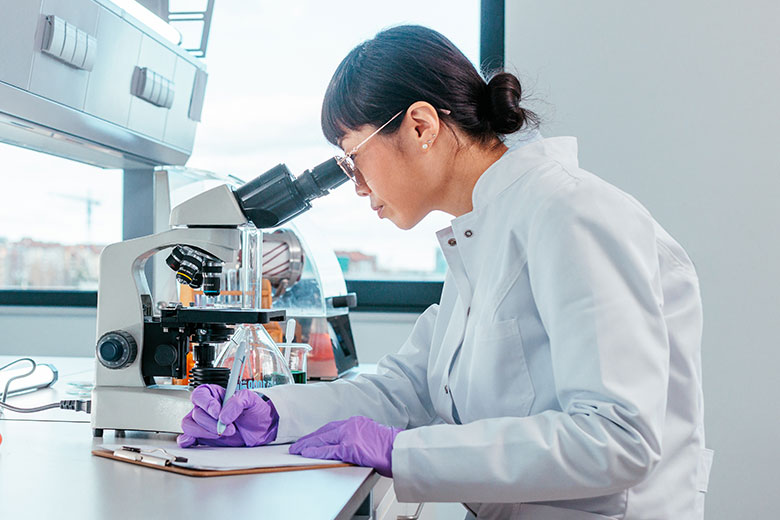Arrhythmia Care
Expert care for irregular heart rhythm
Contact Us
Personalized Arrhythmia Care from Experts
Electrophysiology at Beth Israel Deaconess Medical Center (BIDMC) has long been recognized for our pioneering and innovative role in the treatment of heart rhythm disorders. The CardioVascular Institute's Harvard-Thorndike Electrophysiology Institute and Arrhythmia Service is the oldest, largest program of its kind in New England. We are proud to provide specialized arrhythmia care for you and others from throughout the region and around the world.
About Arrhythmias
An arrhythmia is a problem with the speed or rhythm of your heartbeat caused by abnormal electrical activity in the heart. An arrhythmia can make your heart beat too fast, too slow or with an irregular rhythm.
Our expert electrophysiologists treat all types of conditions that cause abnormal heartbeats, from atrial fibrillation and arrhythmia to ventricular tachycardia.
Dedicated Electrophysiology Lab
The Electrophysiology Lab offers you the most advanced diagnosis and treatment methods — including non-surgical procedures — to control or cure a variety of arrhythmias.
Our lab provides 24-hour monitoring for arrhythmia diagnosis and management. Most people experience excellent outcomes through our full range of advanced treatment options. You’ll also benefit from education and support groups.
Arrhythmia Screening & Diagnostic Services
Our specialists use the most advanced screening and diagnostic tools available today. You’ll benefit from advanced technology and the deep expertise of arrhythmia specialists. Your care team may recommend testing for these purposes:
- To diagnose an abnormal heart rhythm
- To monitor an arrhythmia
- To determine how well treatment — such as medications or a procedure — is working
The CardioVascular Institute’s Cardiac Monitoring Lab performs a type of electrocardiogram (ECG) study for suspected heart rhythm abnormalities. We also provide these services:
- Arrhythmia surveillance after ablation and cardioversion procedures
- Cardiac event monitors that collect one to four weeks’ worth of data when the device detects serious arrhythmia or when you activate the device
- Care coordination with electrophysiology specialists to help identify people at risk for serious arrhythmias
- Long-term ECG monitors that collect three to 14 days of data and provide valuable information to your care team
- Waveform interval measurements following valve replacements and for those on trials of anti-arrhythmic drugs
More About Arrhythmia Care
Depending on the type of arrhythmia you have, your overall health and other factors, your care team may recommend one or more treatment options.
During your visits, tell your doctors about all medications you currently take (including over-the-counter drugs and vitamins), as well as any existing medical issues (including allergies and pre-existing conditions). Your doctor will choose the best medication for you based on this information.
Arrhythmia medications work by slowing conduction of electrical impulses. Specialists use several medications to treat cardiac arrhythmias:
- Amiodarone (Cordarone, Pacerone)
- Disopyramide (Norpace)
- Dofetilide (Tikosyn)
- Dronedarone (Multaq)
- Flecainide (Tambocor)
- Propafenone (Rythmol)
- Quinidine (many trade names)
- Sotalol (Betapace)
Listen carefully to your doctor's instructions regarding how and when to take your medication. It is very important to take arrhythmia medications exactly as directed.
During the first few weeks of taking arrhythmia medication, you may want to avoid driving or operating heavy machinery until you know how the medication will affect you.
Arrhythmia Medication Side Effects
Arrhythmia medications may have side effects. Call your doctor immediately if you experience any of these symptoms:
- Allergic reaction
- Blurred vision
- Chest pain
- Cough
- Diarrhea or constipation
- Dizziness or lightheadedness
- Fainting
- Increased sensitivity to sunlight
- Loss of appetite
- Shortness of breath
- Swelling of the feet or legs
- Worsening arrhythmias
The CardioVascular Institute’s Atrial Fibrillation Clinic is dedicated to atrial fibrillation and atrial fibrillation research. These are some of the clinic’s services:
- Cardioversion, a medical procedure that restores a normal heart rhythm
- Clinical trials of new therapies for atrial fibrillation
- Consultations for atrial fibrillation ablation and anti-arrhythmic drugs
- Counseling for anticoagulation therapy
- Initiation and follow-up of anti-arrhythmic medical therapy
If you have atrial fibrillation, pulmonary vein isolation (PVI) ablation can be an effective treatment option. BIDMC performs PVI ablations without fluoroscopy, eliminating radiation exposure to you and your care team.
Atrial arrhythmias are abnormal heart rhythms originating in the top two chambers of the heart. If you have certain atrial arrhythmias — including atrial fibrillation and atrial flutter — your care team may prescribe a blood thinner (anticoagulant). This medication can help reduce your risk of blood clots and stroke. Blood thinners work by decreasing the clogging ability (coagulating) of the blood.
There are various types of blood thinners:
- Warfarin (Coumadin or Jantoven)
- Dabigatran (Pradaxa)
- Dalteparin (Fragmin)
- Danaparoid (Orgaran)
- Enoxaparin (Lovenox)
- Heparin (many trade names)
- Tinzaparin (Innohep)
If you take blood thinners, your doctor will explain how your medical team must regularly monitor your blood-clotting level. This helps ensure you are taking the correct dosage. The international normalized ratio (INR) value will test how quickly your blood clots. Based on this, your doctor may adjust your blood thinner dosage to maintain your heart's appropriate INR level.
Side Effects of Blood Thinners
Blood thinners may have side effects. Call your doctor right away if you have any of these issues:
- Black or bloody stool
- Bruising that develops without injury
- Dizziness or weakness
- Joint pain, discomfort or swelling, especially after an injury
- Red or brown urine
- Severe bleeding, including heavier-than-normal menstrual bleeding
- Severe headache or stomach pain
- Vomiting of blood or dark material that looks like ground coffee
Specialists use implantable cardiac arrhythmia devices to treat slow heartbeats (bradyarrhythmias) and rapid heartbeats (ventricular tachyarrhythmias). We offer these devices:
- Implantable cardioverter defibrillator, or ICD (small, battery-operated device that tracks and corrects your heart rate)
- Pacemaker (small, battery-operated device that helps your heart maintain a normal rate)
- WatchmanTM device
Catheter ablation is a procedure to treat cardiac arrhythmias. If you have recurrent episodes of cardiac arrhythmias that cause symptoms, your doctor may suggest this treatment.
Advancing Care, Research & Education

CardioVascular Institute
The CardioVascular Institute offers heart and vascular patient care, education opportunities for students, and a range of research programs.

Cardiovascular Research
Our Cardiovascular Research programs are dedicated to advancing cardiovascular care through scientific research, clinical trials and data analysis.

Cardiovascular Education
The CardioVascular Institute offers comprehensive education and training programs for healthcare professionals, including fellowships and residencies.
